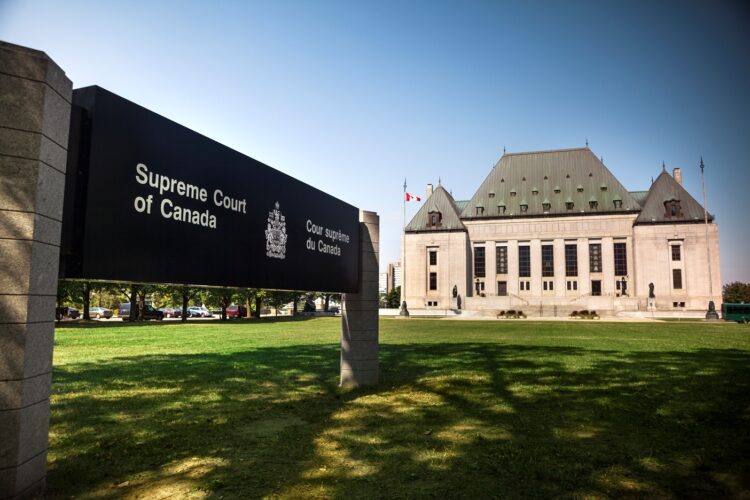Courts hold that lawyer’s retainer “not a lottery ticket offering a bonus price of generational wealth” in $510-million contingency fee ruling in First Nations’ favour

In Nootchtai v. Nahwegahbow Corbiere Genoodmagejig Barristers and Solicitors, 2025 ONSC 6071, the Ontario Superior Court of Justice concluded that a contingency fee charged by a team of six lawyers totaling $510 million was unfair and unreasonable. The Court clarified both its role and the factors to be considered when assessing the fairness and reasonableness of fees levied by legal advisors in connection with large scale “mega-fund settlements.”
Background
First Nations signatories to the Robinson Huron Treaties in Ontario successfully sued Canada and Ontario for breaching their treaty promise to increase treaty annuity payments since the signing of the Treaties in 1850. The litigation was complex and only ended after the Supreme Court of Canada directed Canada and Ontario to negotiate meaningfully and honourably with the plaintiffs to arrive at a fair amount of compensation. Accordingly, Canada and Ontario agreed to pay $10 billion to the Robinson Huron Treaty Litigation Fund in fulfilment of the Crown’s past Treaty obligations. The litigation lasted over 17 years and resulted in the plaintiffs’ counsel accumulating 65,000 billable hours during the course of the proceedings.
According to a Partial Contingency Fee Agreement with the First Nations, the six-member legal team was entitled to a 5% contingency fee which amounted to “a whopping $510 million.” This would result in the legal team receiving more compensation than 15 of the 21 Robinson Huron First Nations who settled with Canada and Ontario – an average hourly rate of $7,800.
Outcome
The plaintiffs representing Atikameksheng Anishnawbek and Garden River First Nation, two of the beneficiaries of the Robinson Huron Treaty Litigation Fund who were entitled to receive a share of the $10-billion settlement payment, argued that the contingency fee was unfair and unreasonable and amounted to “champerty” – an illegal practice whereby a third party, such as a lawyer, obtains a stake in a lawsuit without a legitimate interest in the case.
The Court commended the legal team for their great legal work and acknowledged that they “represented the clients zealously, resolutely, passionately and with extraordinary success.” The Court, however, went on to explain that lawyers are regulated professionals and subject to supervision by law societies and the courts. To maintain the integrity of the legal profession, the Court found that the lawyers’ fees must be proportional to their effort, risk and outcome and any amount that exceeds what is fair and reasonable must go to their clients. This is particularly material in cases involving what the court referred to as “mega-fund settlements,” which involve the payment of very large sums.
In finding the $510-million contingency charged by the legal team in this case was unfair and unreasonable, the Court identified a number of factors that rendered the contingency fee agreement to be unfair and the fee to be unreasonable. The Court found the legal team was in a conflict of interest when advising the Nations on their own fees. The Court underscored the lack of independent legal advice and clear explanation provided to the Nations concerning the nature of the risks and benefits of the contingency fee arrangement. The Court also found that members of the legal team gave incorrect advice about the fee, with one lawyer even trying to dissuade the Nations from obtaining independent legal advice by suggesting it would delay payment of the settlement.
The Court ordered the Robinson Huron Treaty Litigation Fund to instead pay the legal team a contingency fee equal to $23 million. This contingency fee did not include the $17.5 million in legal fees already paid to the legal team throughout the proceedings. Accordingly, the legal team received nearly double the fees that they would have received if they charged their normal rates during the course of the litigation. The Court remarked that “[d]oubling lawyers’ fees for excellent legal services is an extraordinary success fee. There are few, if any, cases where such a substantial bonus could be fairly charged to a client who has been paying most of the legal fees and all of the disbursements as the litigation proceeded.”
Repercussions
This is a major victory for the beneficiaries of the Robinson Huron Treaty Litigation Fund and also provides insight on how courts view and assess the reasonableness and fairness of contingency fees. This is especially relevant given the numerous large settlements being litigated or already settled involving First Nations across Canada, many of which include contingency fees.
MLT Aikins works collaboratively across sectors to advocate for the rights and interests of Indigenous nations and communities. If your First Nation has any questions about legal services, fees or any other matter, the MLT Aikins Indigenous practice group would be happy to assist.
Note: This article is of a general nature only and is not exhaustive of all possible legal rights or remedies. In addition, laws may change over time and should be interpreted only in the context of particular circumstances such that these materials are not intended to be relied upon or taken as legal advice or opinion. Readers should consult a legal professional for specific advice in any particular situation.






